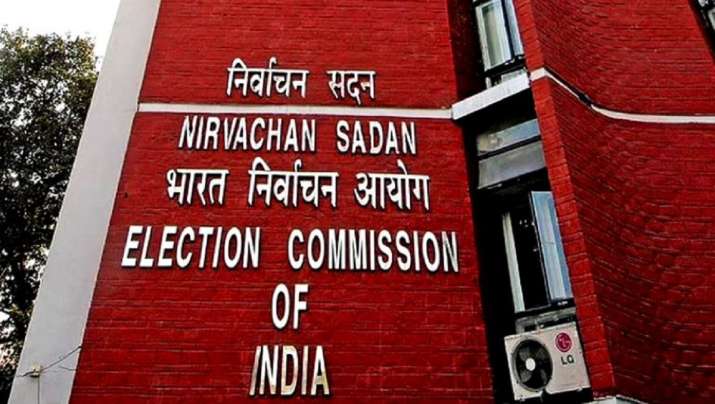In a scenario where it is cornered on the farm-laws & farmers’ protests, and when it is struggling to find the remaining 171 candidates for West Bengal election, the only thorn in the path of BJP right now is Mamata Banerjee. Desperate to get her out of the way, the BJP reached out to the Election commission again.
Allegedly, Mamata Banerjee hid the information in the affidavit submitted with the nomination paper. The charge sheet mentions five FIRs filed in Assam, including a CBI case. The BJP had demanded that Mamata’s nomination be cancelled.
Also See: Battle for Bengal gets pithier as election days getting closer
As soon as questions were raised about the affidavit of the Trinamool Congress-supremo, there was a fight in the state politics all day long. But the whole thing turned diametrically opposite in the afternoon. The question, in this case, is whether the Mamata Banerjee, in whose name the cases are being mentioned, is at all the TMC-supremo or someone different.
Also see: Trilateral fight in West Bengal election 2021
The commission is looking into the whole matter. According to CBI sources, a case was filed against an employee of the Central Government-Group D in Durgapur-Asansol under the Anti-Corruption Act. The CBI found a large amount of property in the investigation. On the basis of this, cases related to inappropriate income were filed. Chargesheet was issued in that case against the central government worker and his wife. Coincidentally, the woman’s name was Mamata Banerjee. This case involving a person with the same name has been tangled with the TMC-candidate from Nandigram, which is CM Mamata Banerjee.
Also See: Would West Bengal election really be a three-way fight after the defections?
Even then, the commission officials are reluctant to give much importance to the issue. They say that if the information in the affidavit is concealed, someone else can submit a counter-affidavit. That is also highlighted on the website along with the information of that candidate. However, the nomination papers are not cancelled. Coincidentally, Monday was the day for scrutiny of the second round of voting. So, naturally the candidates of Nandigram have also been scrutinized. In the second phase, 176 people submitted nomination papers. Among them are CM Mamata Banerjee, 30 candidates from the Trinamool Congress, 30 from the BJP, 15 from the CPM, nine from the Congress, two from the CPI and the Forward Bloc, seven from the BSP, 47 others , and 34 independents. At the end of the scrutiny, it was learnt that CM Mamata Banerjee’s nomination paper was not rejected. The commission has rejected the nomination of only one independent candidate in this episode.
Also See: What are the problem areas of TMC and the chances of BJP in this election season in West Bengal
In other words, despite the BJP’s allegations or desperate attempts, TMC-supremo Mamata Banerjee is contesting from Nandigram. However, the Election Commission is trying hard to handle this assembly election, given the allegations labelled against it. The commission has taken steps to remove ADG (Law and Order) Javed Shamim within 24 hours of announcing the eight-phased-voting schedule, unprecedentedly. Javed sat in that post only 21 days ago. After that, DGP Virendra of the state police was also removed.
Election commission did not take lightly the incident of Mamata Banerjee being injured. The Superintendent of Police and the Director of Security have been suspended for negligence in security. The Commission had instructed the Chief Secretary to fix the name of the next Director of Security by 01 pm on Monday in consultation with the DGP. Similarly, Chief Secretary Alapan Bandyopadhyay sent the name of Gyanwant Singh to Delhi, with the Election Commission having sealed & stamped it.
Also See: West Bengal 2021: Battleground for BJP and TMC
Mamata Banerjee has seriously rattled the BJP-leadership, pushed on a back foot on multiple issues like the farmers’ protests and suppression of voice of dissent, in the context of her being a staunch opponent & vocal critic of the central government, in the face of the upcoming state elections.





